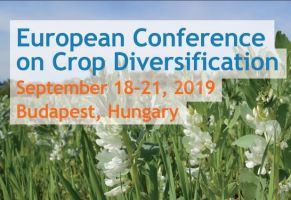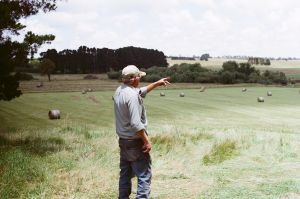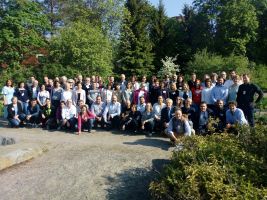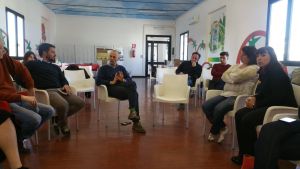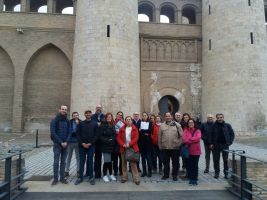- Details
The first European Conference on Crop Diversification will take place from the 18th to the 21st of September 2019, in Budapest, Hungary. The conference aims to explore how sustainable agricultural and food systems can be strengthened through diversification, while maintaining productivity, ecosystem services, and resource-efficient and sustainable value chains. The DiverIMPACTS project, funded by the European Union’s Programme for Research and Innovation, Horizon 2020, is hosting the conference in collaboration with its partner projects Diverfarming, DIVERSify, ReMIX, LegValue, and TRUE.
- Details
An international team of researchers investigate how partnering works to achieve sustainability in agri food supply chains using using a pioneer case study: Barilla Sustainable Farming (BSF)
The European project Diverfarming, founded by the European Commission within its Horizon 2020 programme, not only seeks environmental sustainability among crop diversification and low input management practices, but also seeks to implement sustainable innovations into the agri – food supply chain making it more sustainable too. In this way, value chain actors will also obtain benefits such as economic stability.
- Details
Over 50 European researchers, technicians, farmers, and companies review the latest advances of the Diverfarming project in Finland and share the preliminary results of the measurements from the experimental stations.
Finland has hosted the third annual meeting of the European Diverfarming project, integrated by 25 scientific institutions, companies and agrarian organisations led by the Universidad Politécnica de Cartagena (Spain) and financed by the European Commission within its Horizon 2020 programme. At the main headquarters of the Natural Resources Institute Finland Luke in Joikionen, the scientific team has been able to take stock of the first two years of work and fine-tune the parameters and indicators that are being used to measure the effects of diversification on the sustainability of agrarian systems to improve the productivity of the systems, the environmental benefits and the value chain during these three days. In this sense, Diverfarming seeks to provide proof regarding the environmental impact of abandoning monocropping and adopting a new agricultural paradigm based on multiple crops and low inputs. To do so, the team take measurements throughout 25 lands located in six countries of six principal edaphoclimatic areas: North Mediterranean, South Mediterranean, Atlantic, Continental, Boreal and Pannonia, indicators such as the production, the harvest quality, the biodiversity, carbon sequestration to mitigate climate change, the content of nutrients or the microbiology of the soils, as well as the economic costs and benefits, comparing them with those recorded in areas of monocropping.
- Details
What are the best strategies for crop diversification in response to climate change? And what are the innovations in agronomic management in an environmental context altered by the climate? This was discussed today at the first Regional Meeting of the DIVERFARMING project, which took place at the Ferrari company (Gariga plant, Piacenza), one of the case studies where the rotation of leguminous crops - durum wheat - tomatoes is tested and fertilization by anaerobic digestate (a natural fertilizer derived from biogas production). These are techniques used to increase soil carbon sequestration, thereby improving fertility and microbial biodiversity, as well as reducing greenhouse gas emissions.
- Details
The Spanish Diverfarming team assess their second year of work and outline the strategy of collaboration with farmers
As we reach the second anniversary of the start of the European Diverfarming project, which is led by the Universidad Politécnica de Cartagena and financed by the European Commission’s H2020 programme, the group of Spanish partners integrated within this consortium has held the second Annual Meeting of the South Mediterranean Region, coordinated by Beatriz Lozano, a researcher from the Department of Edaphology at the University of Cordoba.







